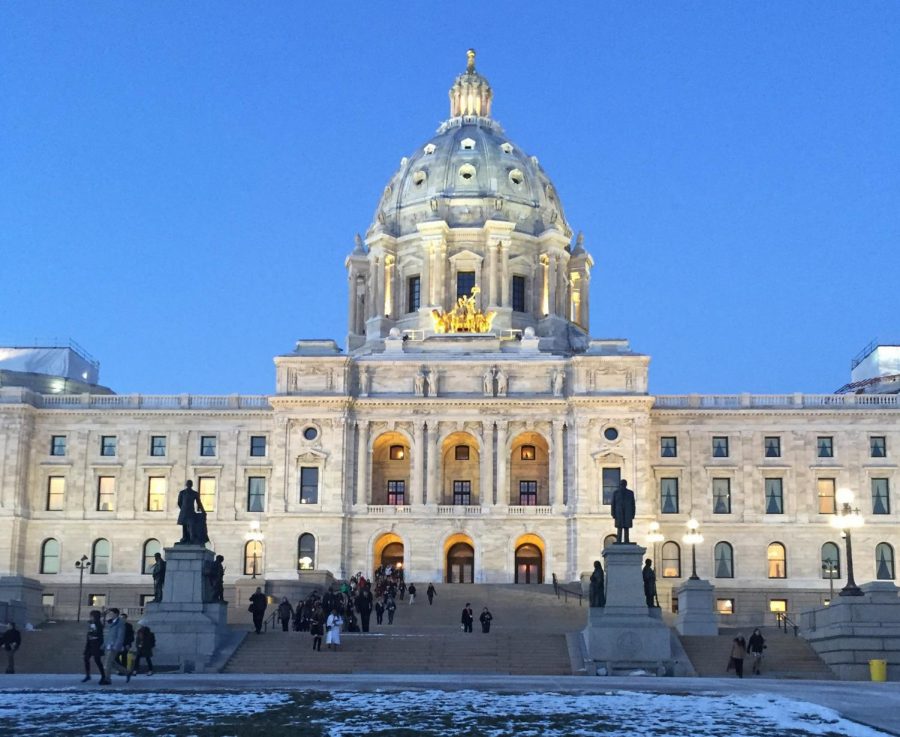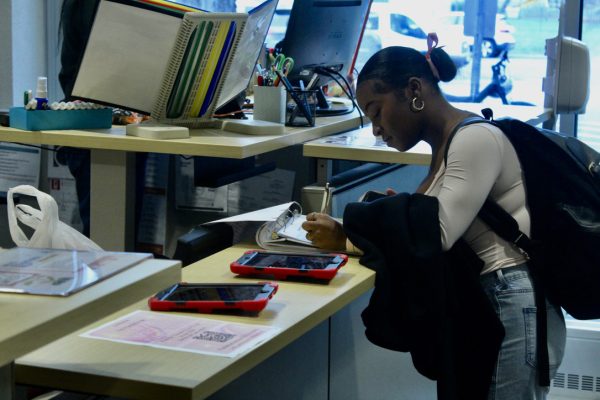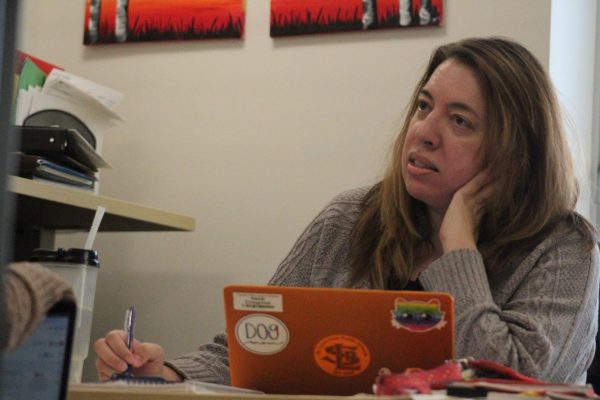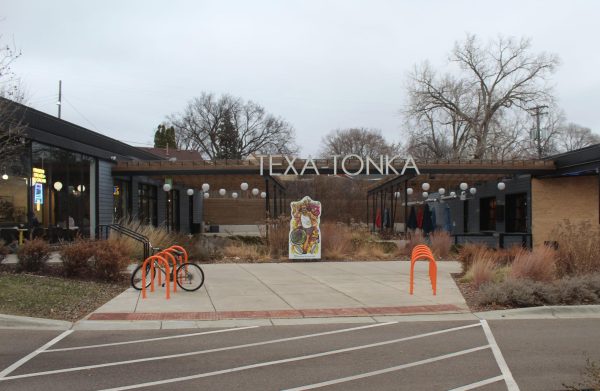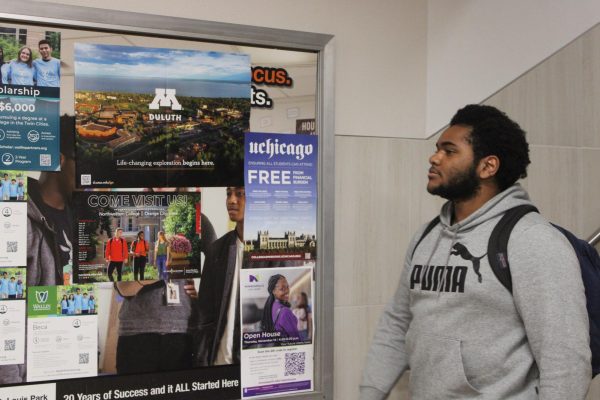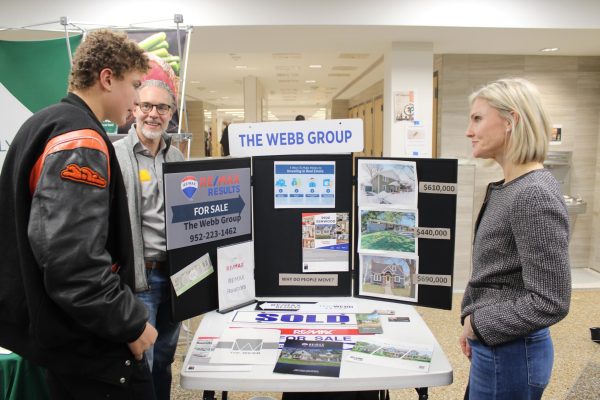Governor’s task force requested to end violence
Bill protecting indigenous women set to pass this spring
The Minnesota state capitol located in St. Paul is lit by the sun April 16. Here is where bills to protect indigenous women will be drafted.
After listening to a study on BBC about missing indigenous women, and Savanna Greywind’s abduction and murder in North Dakota, representative Mary Kunesh-Podein of the Minnesota legislature said she felt moved to act.
“I thought, ‘why isn’t Minnesota doing something about this in Minnesota,’ and then I thought, ‘why aren’t we doing this in the nation.’ So then I thought, ‘I’m going to have to do this, as a legislator, I’m going to have to do this,’” Kunesh-Podein said.
Kunesh-Podein said she proposed a bill to create a task force in Minnesota to combat violence against Native American women and girls.
“This is a request for a task force to be created, and the main purpose of the bill is to improve the collection and dissemination of data on the missing and murdered indigenous Native American women and girls,” Kunesh-Podein said.
Freshman Grace Kanyinku said she would support the creation of a task force in Minnesota to help protect Native American women.
“I would definitely support (the bill) because they were here first, and they deserve all the protection th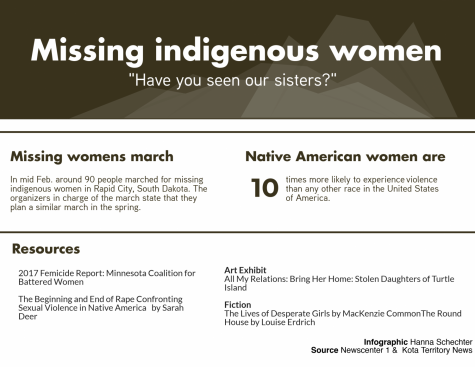 at they need,” Kanyinku said.
at they need,” Kanyinku said.
According to Kunesh-Podein, in the summer of 2017 she held a meeting at the state office building with native and non-native women where she discussed the possibility of a task force.
“We talked about the situation and the need for improved tribal access to federal information and databases,” Kunesh-Podein said. “We talked about creating a standardized protocol responding to cases of missing and murdered Native Americans.”
Kunesh-Podein said the task force is required to give an annual report on violence committed against indigenous women.
“We talked about what the crime entails, and there really isn’t a formalized coding system for missing and murdered indigenous people,” Kunesh-Podein said. “Then (the task force) will need to recommend ways to reduce and end violence against indigenous women and girls.”
Kanyinku said she thinks the task force could work but questions its effectiveness.
“I think it’s a good idea in theory, but I don’t know how it will work out because a lot of things like rape and sexual assault happen in secret,” Kanyinku said
Junior Serena Moore, who is part-Native American, said the injustices Native American women face is terrible and thinks more people should be aware.
“I think that it’s good for them to do because you don’t hear a lot about what happens with the Native Americans,” Moore said. “I think there is a lot of people here who don’t understand what exactly is going on up in the reservations, and I think everyone should be aware of it.”
Moore said she thinks students should support the bill and would be happy if it passed.
“People should know more about what’s happening, and they should try to help and change it,” Moore said. “I think I would be glad if (it) passed because it’s helping the Native American women that (are) dealing with that.”
According to Kanyinku, Park students should care about this piece of legislation because it could affect the Park community.
“We do have Native Americans here there is always a chance it could be their cousin or aunt or their mom who has been abused,” Kanyinku said.
According to Moore, she was unaware of the sexual assault Native American women face.
“I had no idea actually what was going on. I think that is a problem because they brought up human trafficking around the Super Bowl, but then they just kind of washed it away when (the Super Bowl) was over,” Moore said.
Kunesh-Podein said violence against Native American women is something everybody has to take responsibility for and find ways to remove it from Minnesota.
“We can’t just be concerned about our next door neighbor or our community or our school or our city. We have to look at what the fabric of Minnesota is and how we can stich that together in a good safe way for all Minnesotans,” Kunesh-Podein said.
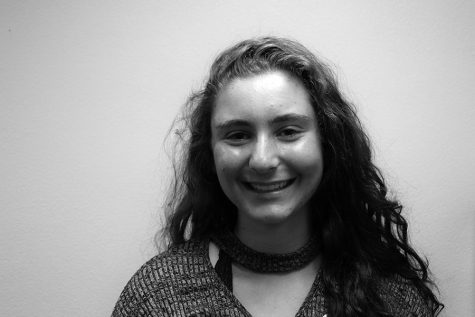
Hi!!! :))) My name is Hanna and I am your co-in-depth editor. You’ll find me playing tennis, reading and hanging out with my ultimate frisbee team. Yes,...



